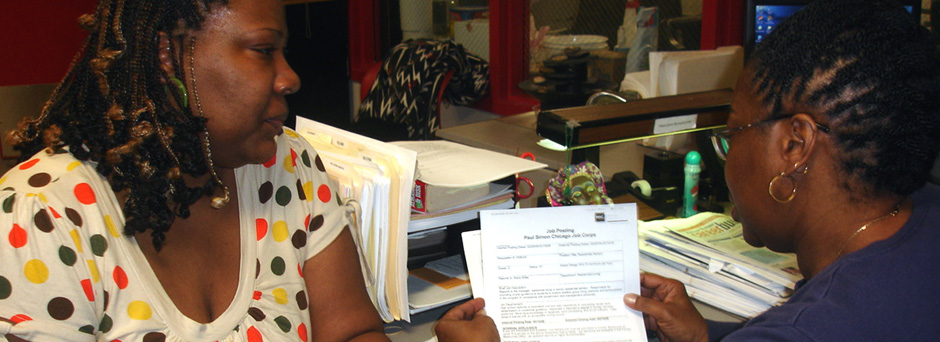When Project Match began its work as a community-based employment program in 1985, there was little data on how people with a sporadic attachment to the labor force worked their way to year-round employment. The reality, now extensively documented over decades of research, is that most people will have many jobs over a number of years before their work life becomes more stabile.
Project Match’s findings have changed the fields of welfare and workforce development. In showing the complexity of job seekers’ experiences, marked by setbacks as well as incremental gains, Project Match has made the case for programs that support and encourage individuals all along the multi-year trajectory to increased self-sufficiency. Once a local welfare-to-work program in Cabrini Green, the organization is now a national authority on workforce issues.
In Chicago’s New Communities Program (NCP), a sixteen-neighborhood revitalization effort, Project Match has been working with the Local Initiatives Support Corporation (LISC) Chicago and the MacArthur Foundation to establish employment programs modeled after Project Match’s. As NCP’s employment programs have evolved into Centers for Working Families (CWFs), Project Match’s employment tracking and data management methods have been expanded to include the CWF financial services and income supports.
Over more than 20 years, Project Match has developed several interventions for low-income families. The most recent initiative, Pathways to Rewards (PtR), is intended to help stabilize public housing families that have moved from the now-demolished Henry Horner Homes to Westhaven Park, the new mixed-income development that is part of Chicago Housing Authority's Plan for Transformation. All household members are helped to set quarterly goals in areas of employment, lease compliance, academic and extracurricular achievement, and community involvement. As family members meet their goals, they earn points (like frequent-flyer miles) toward rewards of their choosing such as DVD players, assistance with utility bills, and gift cards. Every three months, families in the community are invited to a catered event to publicly celebrate and applaud each other’s accomplishments.
As in the employment program, each family member’s goals and progress are carefully tracked and each change in job situation logged into a central system. Pathways to Rewards has received national attention as a community-based variation of New York City’s conditional cash transfer program (CCT); in fact, it was implemented three years before CCT.
In giving us a fuller appreciation of the challenges faced by adults trying to become steady workers, and finding ways to encourage and support those in the process, Project Match has helped change the urban landscape and make individuals and families more self-reliant and secure.
Project Match will use their $500,000 grant to establish an Institutional Development Fund that will help it focus more deeply on research, consulting, and technical assistance.
Grantee Profile: Learn more about Project Match







